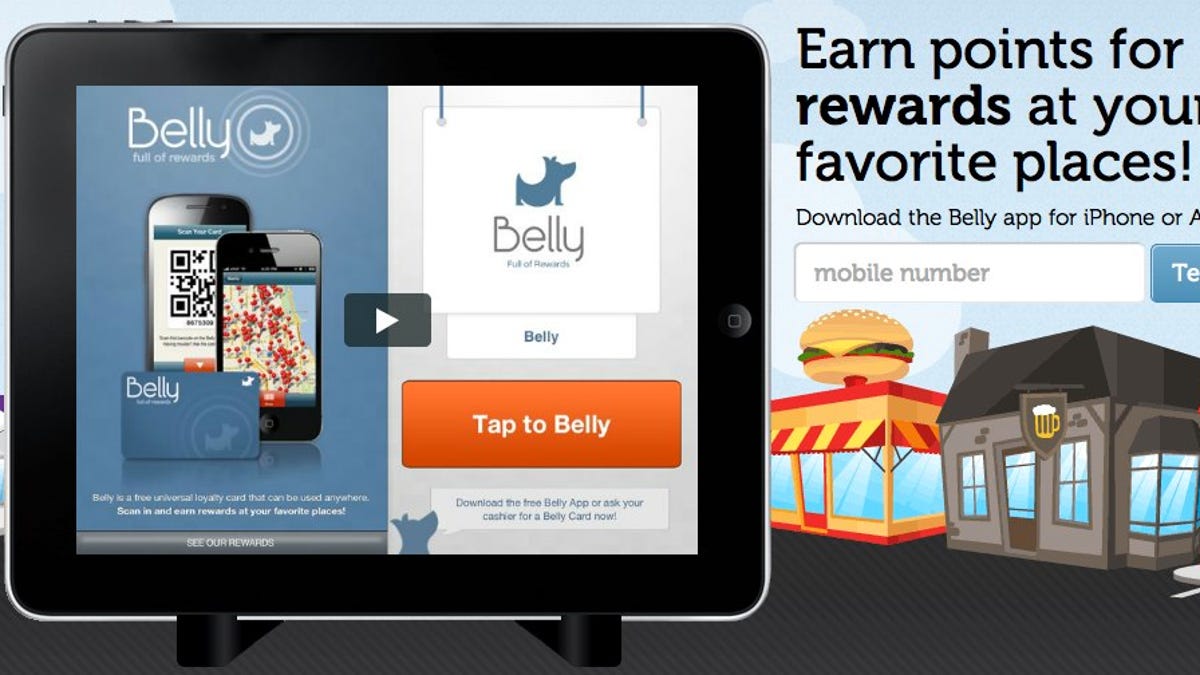Andreessen Horowitz bets $10M on customer loyalty startup Belly
The Chicago startup is going for Groupon-like scale, launching today in New York and Boston.

The rush to replace paper loyalty cards with app equivalents is on, and one of the hottest in the race -- Chicago-based Belly -- has just won a big nod of support.
Venture firm Andreessen Horowitz is investing $10 million in Belly, which the company will use to conquer new markets and keep up its pace of signing on more than 100 local merchants per week. Belly, which is currently available in six cities, today is launching in New York and Boston.
The $10 million investment, a series B round, comes with some star power. Andreessen Horowitz partner Jeff Jordan, the former CEO of OpenTable, is joining Belly's board. Jordan knows a thing or two about building a business that requires people on the ground in each market, signing up local businesses one by one.
"The Net has unleashed unprecedented price transparency across both online and offline worlds," Jordan writes in a blog post about his firm's investment in Belly. "...Merchants are desperate to find ways to compete outside of direct price competition."
In his post, Jordan talks about the "Seinfeld" episode in which Gorge's wallet is exploding with loyalty cards from businesses throughout Manhattan -- an image that should soon seem outdated.
George's fat wallet is the problem that Belly -- and rivals like Stampt and Offermatic, among others -- are trying to solve. Part of Belly's earlier $2.87 million in funding came from the guys at Lightbank who backed Groupon, a company that also knows how to create super-charged growth.
Belly founder and CEO Logan LaHive takes issue with any comparison to Groupon, which, incidentally, also won funding from Andreessen Horowitz. He says his team is not about creating a "one-time blitz" deal for a merchant, but instead works with each business to design a loyalty program that matches its culture. The aim is to create a stronger relationship between the a small- or medium-sized business and its customers.
"Our core focus is driving customers back to the store," said LaHive.
As a result, these are not your standard "Buy 10, get 1 free" offers. LaHive likes to point to the offer at AlleyCat Comics in Chicago, where, after 50 purchases, you can punch the proprietor in the gut. There's a Ben & Jerry's shop in Washington, D.C., at which 200 visits earns you an ice cream date with Jerry himself. And after logging 75,000 points (or 15,000 visits) at Bagelsmith in New York, you get to arm wrestle the owner for a percentage of the business.
Jordan highlighted some of the reasons Andreessen Horowitz is betting on Belly:
- The team has signed up more than 1,4000 merchants and 200,000 consumers since launching in last August.
- The product is elegant and uses emerging trends; every merchant gets an iPad that customers see at the register and can check-in on.
- Andreessen Horowitz believes a large, connected network of merchants and consumers will lead to opportunities beyond loyalty programs.
Other markets Belly is already available in include: Chicago, Austin, Milwaukee, Madison, Wis., and Phoenix, Ariz.

